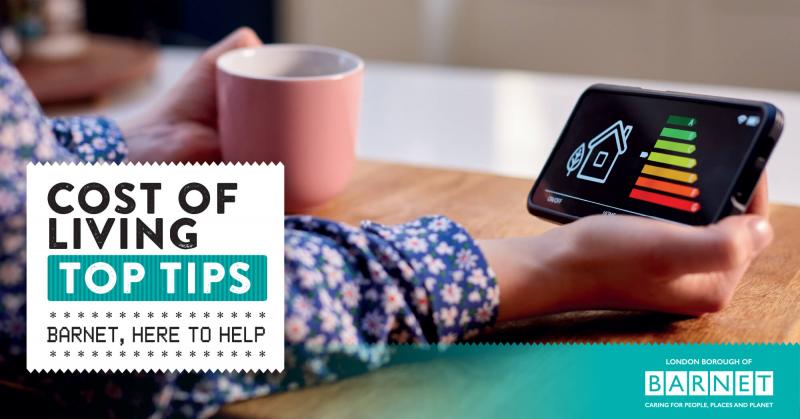Save energy and money at home
Skip to:
We understand the cost of living and energy crisis is worrying. Many of us will be thinking about the ability to heat our homes, cook and stay warm.
Around 21% of the UK’s carbon emissions come from our homes. These emissions come from heating or cooling properties, generating hot water and powering appliances.
How and when you use appliances around the home can help lower your energy and utility bills.
We have worked with energy experts to create a list of tips to help reduce energy and keep warm. This will help to:
- save money during the cost of living crisis
- tackle climate change as a borough
Top ten tips to save energy in the home
- Switch to using LED lightbulbs. These use 90% less energy than traditional bulbs. In a few months, LED light bulbs can pay for themselves through their energy saving quality.
- Switch off electrical appliances when they’re not in use. You can save around £65 a year by turning off your appliances instead of leaving them on standby mode.
- Turn your lights off when you’re not using them. This will save you around £25 a year on your annual energy bills.
- Try a slow cooker as a cheaper cooking alternative. An electric cooker costs on average 87p per day to run. Meanwhile, a slow cooker costs just 16p a day.
- Only boil water that you need. Avoid overfilling the kettle and save yourself £13 a year on your electricity bill.
- Wash your clothes carefully. You can save around £34 a year by washing clothes at 30 degrees and reducing your wash to one run per week.
- Turn down the temperature. Every degree you lower on your thermostat by could lower your heating bill by 10%.
- Take shorter showers. Keeping your shower time to 4 minutes could save a typical household £95 a year on their energy bills.
- Put a lid on cooking pans. Trapping heat with lids cooks food quicker. A covered pan of water will take less time to boil, saving on energy costs.
- Keep the heat in. Draft proofing the bottom of doors, letterboxes and windows, could save you around £60 a year.

